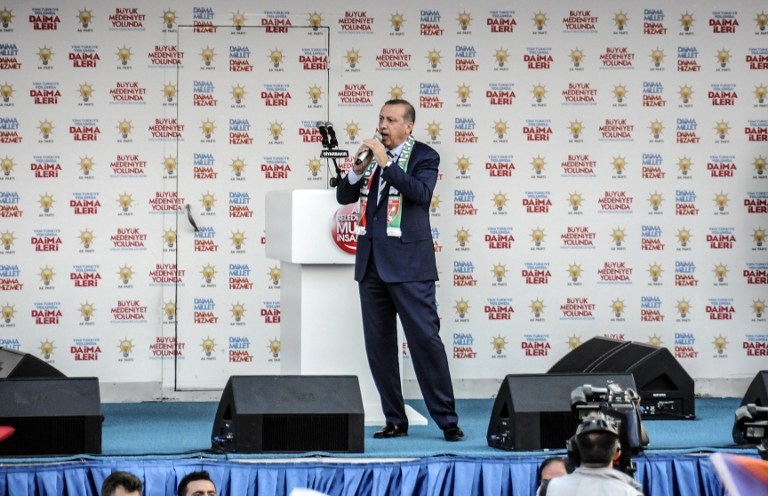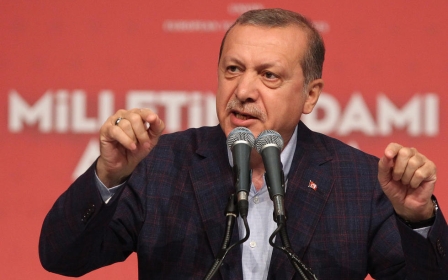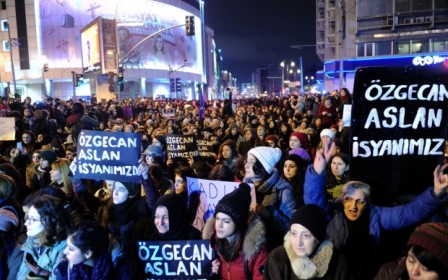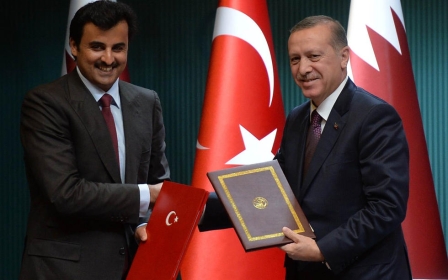US journalist denied Turkish citizenship after Erdogan criticism

A Turkish city cancelled a ceremony this week to honour a Boston Globe reporter - and offer him Turkish citizenship - at the personal order of President Recep Tayyip Erdogan, according to the US journalist's account.
Stephen Kinzer, who was New York Times bureau chief in Turkey from 1996 to 2000, travelled to the country on Tuesday to receive honourary Turkish citizenship in a ceremony in the city of Gaziantep, in light of work he did in the city about the rescuing of Roman mosaics while he was the Times' bureau chief.
Upon arriving, “my acutely embarrassed hosts sat me down and told me the ceremony, and my honorary citizenship, had been cancelled by personal order of President Recep Tayyip Erdogan," Kinzer wrote in a column about the journey in the Boston Globe on Wednesday.
Erdogan's office sent a fax to the city authorities describing Kinser as “an enemy of our government and our country” and attached a passage from one of Kinser's columns as evidence.
The offending remarks were a paragraph written in a column in the Boston Globe this January: “Once seen as a skilled modernizer, he now sits in a 1,000-room palace denouncing the European Union, decreeing the arrest of journalists, and ranting against short skirts and birth control.”
Turkey has been repeatedly criticised in recent years for its arrests of journalists and restrictions on media organisations.
According to the Turkish Journalists' Union (TGS), there are currently 21 journalists imprisoned in Turkey.
“Every day, there are new court cases being filed against journalists,” TGS President Ugur Guc, speaking to a rally on World Press Freedom day earlier this month.
The revocation of Kinser's honorary citizenship comes just days after Erdogan slammed his former employer for “meddling in Turkey’s affairs" after it published a critical editorial on 22 May.
“Who are you? Can you write such a thing [writing a critical editorial] against the U.S. administration? If you do, [the administration] would immediately do what is necessary,” Erdogan said during a panel in Istanbul on Monday.
He also cryptically threatened the Turkish daily Hurriyet – describing them as “coup-makers” - after the New York Times editorial slammed a lawsuit filed by Erdogan's Justice and Development party (AKP) against the newspaper.
“A certain media group in Turkey tries to sustain its tutelage by taking support from certain places. The new constitution and switching to a presidential system will eternally seal the path of these coup-makers,” he added.
The Doğan Media Group, which owns Hurriyet, has been threatened with criminal action over a 16 May online report on the death sentence handed to deposed former Egyptian President Mohamed Morsi, saying the article’s headline on the website amounted to a death threat against Erdogan.
“The world is shocked! Death sentence for president who received 52 percent of the vote," read the headline.
This week, a prosecutor in Ankara also called for a ban on several media outlets, including the Samanyolu and Bugün TV stations, accusing them of "promoting terrorism”, an allegation that has been used in the past to label journalists prior to their arrest.
"In many countries, a head of state would not even acknowledge a few unflattering sentences published ın a newspaper thousands of miles away, or might shrug them off with no more concern than an elephant shows for a mosquito," wrote Kinzer. "Erdogan, however, takes an intense interest in what the press writes about him. Many of the country’s independent journalists have been forced from their jobs."
"Those who remain are expected to toe his party line."
New MEE newsletter: Jerusalem Dispatch
Sign up to get the latest insights and analysis on Israel-Palestine, alongside Turkey Unpacked and other MEE newsletters
Middle East Eye delivers independent and unrivalled coverage and analysis of the Middle East, North Africa and beyond. To learn more about republishing this content and the associated fees, please fill out this form. More about MEE can be found here.




